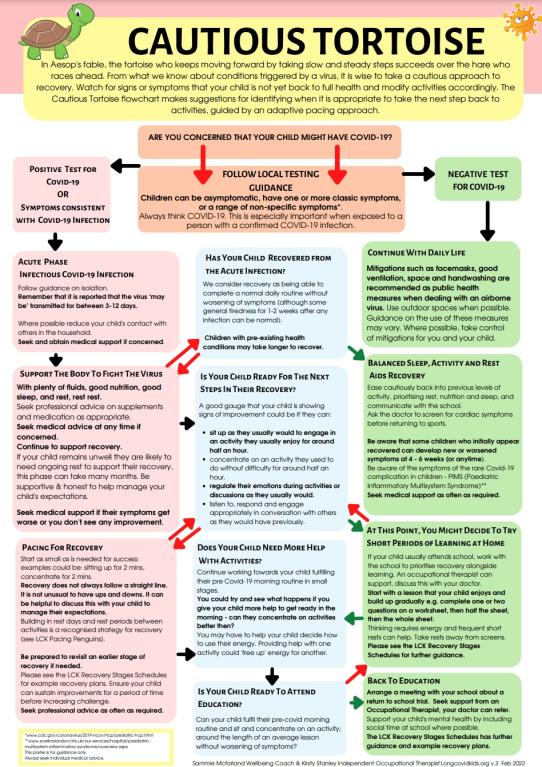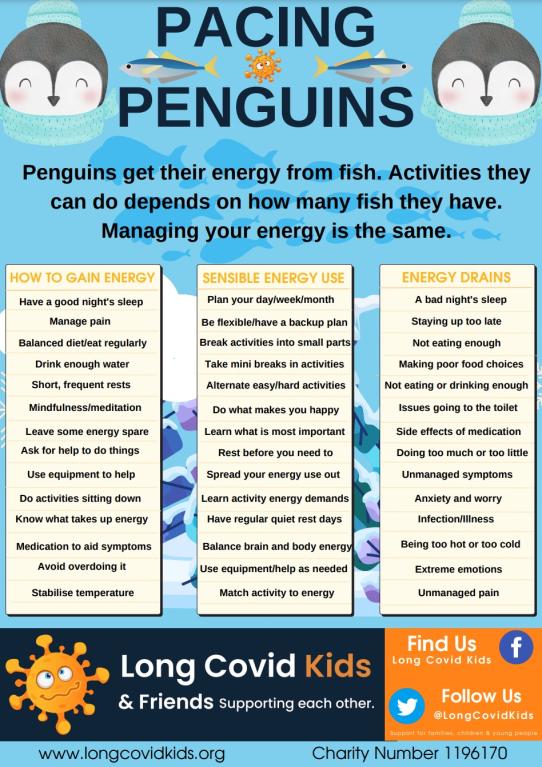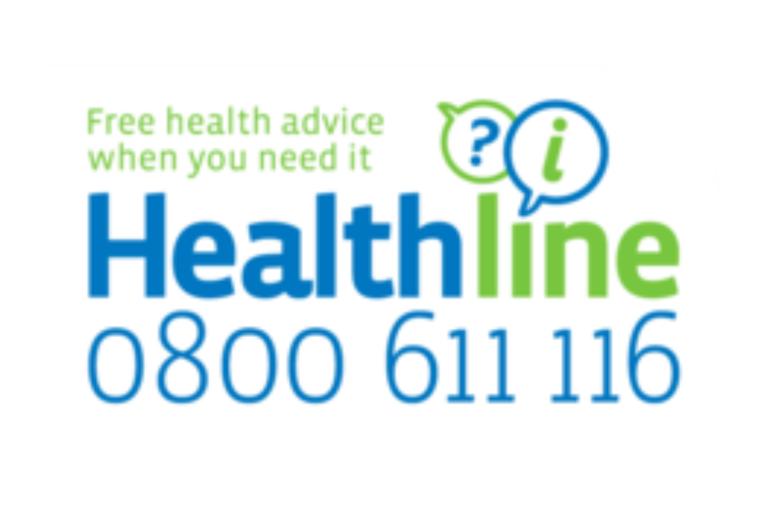Supporting your child recovering from COVID-19 infection
For most tamariki with mild COVID-19, they will be back to normal within a week. A small number of tamariki might take up to 2 weeks to feel back to normal.
Make sure your child gets enough sleep.
Encourage them to eat and drink normally.
You don't need to restrict your child from doing activities they feel like doing. Be guided by them.
What is long COVID?
Most tamariki with COVID-19 will have a mild illness and get better quickly. Long COVID or post-COVID-19 condition are the terms used to describe symptoms that continue for more than 12 weeks after a positive test.
For a child or young person to have a diagnosis of post-COVID-19 condition, their symptoms need to be having an impact on their everyday functioning, and cannot be explained by another condition.
Nearly all tamariki will fully recover and return to normal health.
What is known about long COVID in children?
Scientists and health professionals are still learning about long COVID, but studies so far have found:
- tamariki are much less likely to have long COVID than adults
- tamariki recover faster than adults
- it mostly affects tamariki over the age of 10 - it's very rare in younger tamariki
Symptoms of long COVID
The following are some of the symptoms in people who have taken longer to recover from COVID-19.
The most common symptoms in tamariki are:
- changes to sense of taste and smell
- unusual tiredness (fatigue)
- headaches
- difficulty concentrating and brain fog
Tamariki can also have:
- muscle aches
- joint pain
- cough
- low mood
- dizziness
- difficulty sleeping
- chest pain
- breathlessness
- fast-beating or pounding heart
- new or worsening urinary symptoms
Symptoms can sometimes come and go and will vary between tamariki. For example, one child may struggle to complete their homework while another may feel too tired to go to school.
Some tamariki and rangatahi (young people) have similar ongoing symptoms after other viral infections (such as glandular fever).
There is a rare condition that affects a very small number of tamariki about 2 to 6 weeks after their first COVID-19 symptoms. This is called multisystem inflammatory syndrome in tamariki (MIS-C). If your child has a fever and looks very unwell, seek urgent medical help.
COVID-19 - Multisystem Inflammatory Syndrome In Children (MIS-C)
How to care for your child with ongoing COVID symptoms
If symptoms continue beyond 4 weeks, it's important to see a health professional.
Your child may need to rest more than usual, and it's important they get enough sleep.
Some things you can do to help your child
- have a routine in place
- make sure they are drinking well
- encourage your child to sit up out of bed some of the time
- do gentle exercise, even if it's just walking to the letterbox and back
- talk to your child's early childhood centre or school about how they can gradually ease back into their education
- keep in touch with whānau (family) and friends, whether it's in person, over the phone or on video
Aim for gradual gains
Being away from school for a long time, lack of exercise and being isolated from friends can have a negative impact on your child’s wellbeing. It’s important to gradually incorporate these back into your child’s life as they recover. Aim for gradual gains, remain positive about their recovery and always seek help if you're not sure what to do.
See a health professional if your child has ongoing pain
If your child is miserable with pain, you can give them paracetamol to make them more comfortable. You must follow the dosage instructions on the bottle. It is dangerous to give more than the recommended dose. If the pain continues, see a health professional. Never give your child aspirin as this may increase the risk of Reye syndrome, which is a rare and serious illness.
Safe Use Of Paracetamol In Children
When to get medical help for your child
If your child has ongoing symptoms you can usually care for them at home. Your child should slowly improve.
Take your child to their health professional if:
- they are getting worse
- they get a fever
- they get new symptoms
- they are not improving after 4 to 6 weeks
If your child becomes very unwell, call an ambulance by dialling 111 within New Zealand (use the appropriate emergency number in other countries) and ask for urgent medical help.
Check some resources on recovering from long COVID
Check out a couple of posters from an organisation in the UK.

This poster is in the form of a flowchart. It makes suggestions for when to take the next step back to activities. It's based on the idea that the tortoise who keeps moving forward by taking slow and steady steps succeeds over the hare who races ahead.

Penguins get their energy from fish. Activities they can do depends on how many fish they have. Managing your energy is the same. There are suggestions for how to gain energy, sensible energy use and energy drains.
More KidsHealth content on COVID-19
Healthline is available 24 hours a day, 7 days a week on 0800 611 116. Call Healthline if you need advice about a child of any age who is unwell, hurt, or has any symptoms of sickness. It's free to callers throughout New Zealand, including from a mobile phone.
Acknowledgements
The content on this page has been developed following wide consultation with paediatricians and other child health professionals. Scientists and health professionals are still learning about long COVID, and this page will be continuously updated as new evidence emerges.
References
Do kids get long COVID? And how often? A paediatrician looks at the data - an article by University of Sydney child and adolescent health senior lecturer Philip Britton.

